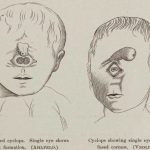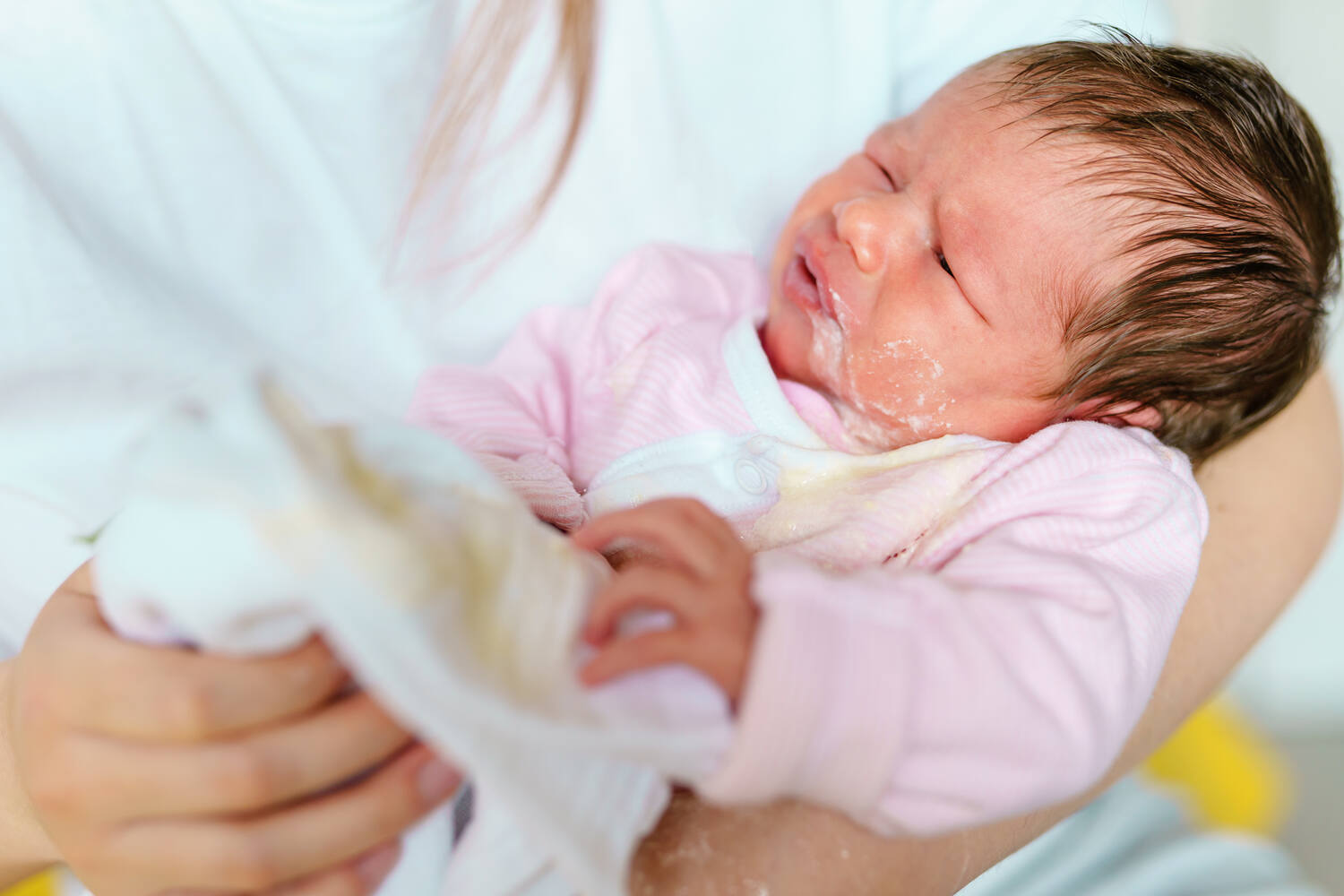
12 Foods That Can Cause Colic in Breastfed Babies
7 min readWritten by Editorial Team


Breastfeeding is the ideal choice for mothers and infants – given the benefits, it offers to both parties. After 9 months of pregnancy, many women tend to indulge in foods that they avoided during the gestation period. However, if you are breastfeeding your baby, you still need to monitor your diet, avoid certain foods and eat more of others so as to increase your breast milk supply. Read on to find 12 foods that can cause colic in breastfed babies.
If your baby is crying uncontrollably, they may most likely be suffering from colic pain. In such cases, nursing mothers may need to avoid foods that can cause colic in breastfed babies. Certain foods can bother a breastfed baby, though research does not support these claims. Yet, a trial and run approach work well to eliminate such foods that your baby might have a reaction to. However, a general consensus has been made about foods that a breastfeeding mother should not eat, especially if she notices colic in her baby.
In This Article
- What is Colic?
- What Causes Colic in Breastfed Babies?
- Colic in Breastfed Babies
- 12 Foods That Can Cause Colic in Breastfed Babies
- Tips To Prevent Colic In Babies
- When to Consult Doctor
- FAQ’s
What is Colic?
Many babies have initial overly fussy periods during their early days of life. The culprit is believed to be gas and air, and a colicky baby lets out high-pitched wails to signal they are in pain. The baby may also tense their body, bringing knees closer to the stomach, and clenching their fists. These intense, agonizing periods of fussiness and crankiness can be hard not only on the baby but also on you as a parent. It is heartbreaking to see your baby crying continuously and for long periods in pain and distress.
This brings you to the question if your baby is sensitive to something that you possibly ate. Some babies can also be allergic to certain foods, so you might want to eliminate them from your diet. Colic is characterized by uncontrolled periods of crying, during which nothing seems to comfort your baby. These periods usually extend towards late evenings, making the baby wakeful and irritable.
What Causes Colic in Breastfed Babies?
Colic is actually a medical mystery largely! Even specialist doctors find it difficult to identify the exact cause of colic. The same treatment does not work for every child. Various medications and strategies have been tried, and some of them have worked but there is no proven remedy.
The symptom is marked by apparent ripples of stomach pain and the child may crouch or fold their feet towards the belly. Apart from super-sensitive, emotional reasons, it can merely be a digestion issue. Colic is known to occur in about 30% of all babies and is most common during the first 3 months of a baby’s life.
[Read: 15 Home Remedies To Soothe A Colicky Baby]
Colic in Breastfed Babies
When a mother breastfeeds her baby, she is passing on the food she ate to the baby. Some babies can be sensitive to certain foods in the mother’s diet, which gets transferred through the milk. In a short span of fewer than 2 hours, colic-causing foods can enter the mother’s milk, and upset your baby-making them cranky, irritable, and fussy.
12 Foods That Can Cause Colic in Breastfed Babies
Breastfeeding moms should take note of the following ten foods and see if eliminating/avoiding them can reduce colic in their babies. Find out 12 Foods That Can Cause Colic In Breastfed Babies.
1. Alcohol
Okay, a little alcohol may be alright to celebrate and all that, but keep it to very little. Do remember that your baby will have to drink whatever you are drinking, so be very careful. In fact, if possible, don’t drink it altogether as long as you are breastfeeding. The celebrations can wait. Priority always is in ensuring good health of the baby.
2. Smoking

The same goes for smoking. Although tobacco can be a stress reliever for a responsible adult, it is obviously not at all good for the delicate body of the baby. Chances are that you have already stayed out of smoking for the last nine months. It should not be much of an issue to stay away now.
Even then, if you do happen to take a drag, limit it to as little as possible and do not breastfeed at least after four hours of smoking. Drink a glass of water or fruit juice to detoxify the body periodically. Besides, water and juices are lactogenic and supply nutrition to the body.
3. Soft Drinks
Moms tending to newborns should completely avoid all kinds of soft drinks and energy drinks. These products, available in attractive marketing, are actually nothing but water-laden with tons of chemicals. Instead, you can make your own baby lemonade at home. Be light, though, because citrus fruit juices can be difficult for the baby to digest as well. Lassi is always a good option.
4. Hot Spicy Foods
Your baby will find it difficult to digest spicy foods. Strictly avoid hot spices such as red pepper when you are breastfeeding. However, some spices such as methi, jeera, til, ajwain, and saunf are good for new moms as these boost milk supply.
5. Coffee
Always think of your body as your baby’s body. Coffee is amazing, but the constitution of adults and children is not the same. You may like the high, but it will be uncomfortable for the baby. Besides, coffee also causes gas, which is a usual reason for colic pain.
6. Certain Legumes Can Trigger Colic in Babies
Certain common Indian legumes of the staple diet, such as rajma, lima (sem phalli), and soya beans also cause gas. Keep the consumption of these to a minimum.
7. Too Much Milk Can Trigger Colic in Babies

While drinking milk during breastfeeding is good to boost lactation, an excess of it causes digestive issues. Remember, milk is high in protein and this protein content gets into the breastmilk which can cause gas and pain for your little one. You can have up to 2 big glasses of milk in a day to boost your calcium levels and provide the necessary nutrients for your baby without causing complications.
8. Onions, But Not Garlic
Try to limit onion in your diet to a minimum when you are breastfeeding. People who like onions in food also prefer green chili. Both these common foods can be difficult for the tiny one to digest. However, you should include garlic occasionally in the diet as it boosts milk supply and supplies immunity.
[Read: Garlic And Breastfeeding – Is It Safe?]
9. Vegetables That Trigger Colic in Babies
Certain vegetables with high fiber content and from the cruciferous families take time to digest. Gas chest pains on a diet of cabbage or radish are actually a usual complaint. Cauliflower and broccoli can also cause gas, especially if not cooked thoroughly.
10. Fast Foods
Avoid common fast foods not only when you are breastfeeding, but also when you are not. Okay, the occasional pizza can be amazing, but most of the branded burgers and hamburgers are high in chemical preservatives. The companies have to add chemical ingredients to increase the shelf-life of the foods, and the chemicals can be harmful to you and your little one.
Obviously, food that is intact on the shelves for one week is stale but concealed by chemicals. Prefer fast foods (like pizza) that are freshly made on order from the oven. If the pizza is too spicy, drink fruit juice to detoxify first.
11. Nuts
While nuts are a good source of protein and fat, some varieties, such as almonds and cashews, can cause gas and stomach problems in breastfed babies
12. Brussel sprouts
In addition to being low in calories, Brussel sprouts are high in fiber, vitamin K, and vitamin C. However, they tend to be gassy for breastfed babies, and can make them colicky.
Tips To Prevent Colic In Babies

Following are some tips for preventing colic in babies:
- You may be able to help your baby digest breast milk better if you give small amounts of it regularly. This helps to prevent colic episodes in babies
- To prevent colic in your child, get advice from an expert on the best breastfeeding diet.
- You should avoid drinking caffeinated beverages and limit eating dairy products. Ask your doctor about the ideal intake if you have an urge to have it.
- If your baby experiences colic, you may consider taking herbal supplements. To help with the treatment of colic in your baby, however, we recommend that you consult your doctor before taking any herbal supplement.
When to Consult a Doctor
The majority of cases of colic are easily managed, but your baby’s doctor may need to be consulted occasionally. When you notice that your baby has diarrhea, vomiting, or other alarming symptoms, never hesitate to call the doctor
Conclusion
Babies cry. It is natural. That is the only language of urgent communication that a baby knows! In a newborn’s life, almost everything is urgent because nothing is familiar. As parents, we need to understand and accept this. Parenting a cranky, colicky baby can be very tiresome, but there is always a way if you have the will. It’s just a baby!
[Read: Colicaid Drops Vs Gripe Water]
FAQ’s
1. Can Mother’s Diet During Breast Feeding Cause Colic in Babies?
Yes, it can. what you eat can get passed to the baby through the milk. If they can’t digest it, they can suffer from colic pains.
2. Can I Drink Aerated Drinks While Breastfeeding?
Yes, you can, in moderation. It is not advisable though. If you feel your baby is suffering, discontinue consumption.
3. Will Drinking Alcohol While Breastfeeding Cause Colic in My Baby?
In some cases, it might. You can avoid feeding the baby for two hours after your drink. This will give your body time to flush it out.
4. Can Coffee While Breastfeeding Cause Colic Issues in Baby?
This is very rare. Coffee is acidic. Some babies might react negatively to it in breast milk.
Read Also: Food to Eat and Avoid During Breastfeeding

Editorial Team,
With a rich experience in pregnancy and parenting, our team of experts create insightful, well-curated, and easy-to-read content for our to-be-parents and parents at all stages of parenting.Read more.
Responses (0)
Want curated content sharply tailored for your exact stage of parenting?
Related articles

Top Activities For A 7 Month Old Baby – Benefits and Tips For Parents

Cyclopia in Babies – What is it , Symptoms and Risk Factors

Room Sharing With Your Baby – Top Tips to Help Parents

Stress in Babies – Causes & Prevention

Breastfeeding After IVF – Tips to Cope

Baby Spitting Up Mucus – Is it Normal?
Sponsored content
Discover great local businesses around you for your kids.
Get regular updates, great recommendations and other right stuff at the right time.





